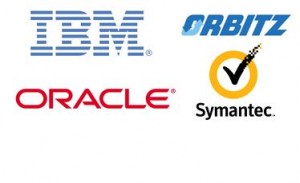 WASHINGTON – Four new major American companies have become the latest to endorse the Equality Act, federal legislation that would establish full, federal equality for all LGBT Americans. In doing so, these leading companies – IBM, Oracle, Orbitz, and Symantec – made clear that they believe all LGBT Americans should have the protections from discrimination in federal law that they deserve.
WASHINGTON – Four new major American companies have become the latest to endorse the Equality Act, federal legislation that would establish full, federal equality for all LGBT Americans. In doing so, these leading companies – IBM, Oracle, Orbitz, and Symantec – made clear that they believe all LGBT Americans should have the protections from discrimination in federal law that they deserve.
They join American Airlines, Apple, The Dow Chemical Company, Facebook, General Mills, Google, Levi Strauss & Co., Microsoft, and Nike as part of a national business coalition supporting comprehensive, federal LGBT non-discrimination protections.
Additionally, Hewlett-Packard in Fortune recently announced its support for the Equality Act.
STATEMENT BY IBM: “IBM’s workplace culture is built on the principles of non-discrimination and equal opportunity for all. We established a corporate policy on equal opportunity more than a decade before the Civil Rights Act. We championed an industry-leading policy of non-discrimination based on sexual orientation over 30 years ago, and expanded it in 2002 to cover gender identity and expression. IBM is proud to support the Equality Act and maintains our steadfast support for all employees to experience equality in the workplace.”
STATEMENT BY ORBITZ: “At Orbitz we’ve been advocates of equality and inclusion since our founding in 2001. Our support for the Equality Act is consistent with our other actions, such as signing the amicus brief calling on the Supreme Court to find gay marriage bans unconstitutional.”
STATEMENT BY SYMANTEC: “At Symantec, we are proud to support full and equal rights for the LGBT community. We believe having a diversity of perspectives ensures we make better business decisions and the products and services we offer meet the needs of the broad spectrum of people we serve worldwide, which is why we couldn’t be more proud to support the expansion of legal protections. We unequivocally support the Equality Act – for the future of our business and society.”
All of these major companies scored a perfect 100 on HRC’s annual Corporate Equality Index (CEI), a nationally-recognized benchmark of LGBT inclusion in the workplace, and were recognized on HRC’s list of Best Places to Work for LGBT Equality in 2015.
“Momentum for the Equality Act continues to grow as the American business community stands up for diversity, inclusion and equality — principles critical to the success of any company,” said HRC President Chad Griffin. “We are tremendously grateful to these corporate leaders for their support of the Equality Act and the basic principle that all Americans should be able to live their lives free of discrimination. A growing number of companies agree — equality is good for business and the time for full federal equality is now.”
Earlier this year, more than 120 prominent leaders in the tech industry called on legislatures across the nation to add sexual orientation and gender identity as protected classes to their civil rights laws, and to explicitly forbid discrimination or denial of services to anyone.
Last week, Ted Olson and David Boies, the bipartisan legal team that represented the plaintiffs in the Hollingsworth v. Perry case that challenged California’s Proposition 8 and was ultimately heard by the U.S. Supreme Court, came out in support of a comprehensive federal LGBT non-discrimination law.
The results of a new Democracy Corps survey from Greenberg Quinlan Rosner Research released last week indicates that support for non-discrimination legislation unites the country. Nearly two-thirds (64 percent) of likely Republican voters support protecting LGBT people from workplace discrimination, as do 90 percent of Democrats. Similarly, this legislation draws impressive majorities of support among college (84 percent) and non-college voters (73 percent), younger (85 percent) and older voters (75 percent), as well as observant Christians (70 percent).
In March, polling conducted by Greenberg Quinlan Rosner for the Human Rights Campaign (HRC) revealed that nearly two-thirds of LGBT Americans (63 percent) have faced discrimination in their lives, with LGBT people reporting workplace discrimination as the most frequently experienced form of discrimination.











